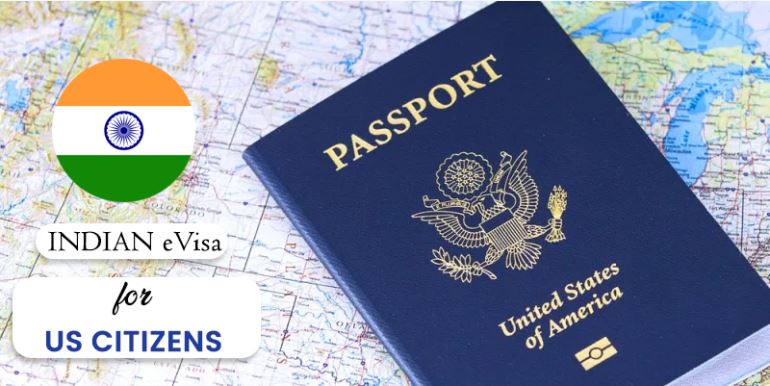In today’s globalized world, traveling to different countries has become more accessible than ever. Turkey, with its rich history, vibrant culture, and stunning landscapes, is a popular destination for tourists and business travelers alike. Whether you’re planning a leisurely vacation or a professional trip to Turkey, understanding the visa requirements is crucial. In this article, we will delve into the intricacies of eVisa and emergency visa options for Turkey, providing you with a comprehensive guide to navigate through the application process seamlessly. eVisa for Turkey
What is an eVisa for Turkey?
An eVisa, short for electronic visa, is a digital travel authorization that allows foreign nationals to enter Turkey for tourism or business purposes. It eliminates the need for traditional visa stamps or labels, streamlining the application process for travelers. The eVisa system was introduced by the Turkish government to facilitate tourism and boost economic growth by simplifying visa procedures.
Eligibility for eVisa
The eligibility criteria for obtaining an eVisa for Turkey are relatively straightforward. Citizens of eligible countries can apply for an eVisa online, provided they meet certain requirements. Generally, applicants must have a valid passport, a credit or debit card for payment, and an email address to receive the eVisa electronically. Emergency Visa for Turkey
Application Process for eVisa
Applying for an eVisa for Turkey is a simple and user-friendly process. Interested individuals can visit the official website of the Turkish government’s eVisa application system and fill out the online form. The application typically requires personal information, passport details, travel itinerary, and payment of the visa fee.
Processing Time and Fees
The processing time for an eVisa application is usually quick, with most applicants receiving their eVisa within 24 hours. However, it’s advisable to apply well in advance of your intended travel date to avoid any last-minute delays. The fee for an eVisa varies depending on the applicant’s nationality, but it is generally affordable and payable online via credit or debit card.
Validity and Renewal
Once issued, an eVisa for Turkey is typically valid for a specific period, usually ranging from 30 to 90 days. Travelers should carefully check the validity dates to ensure their visa remains valid for the duration of their stay in Turkey. If needed, eVisas can be renewed or extended through the appropriate channels.
Emergency Visa for Turkey
In certain circumstances, travelers may encounter emergencies that require immediate travel to Turkey. In such cases, the Turkish government offers emergency visa options to expedite the visa application process and facilitate travel arrangements.
Types of Emergency Visas
Emergency visas are available for various situations, including medical emergencies, family emergencies, and urgent business travel. Each type of emergency visa caters to specific needs and requirements, ensuring prompt assistance and support for travelers in distress.
Application Process for Emergency Visa
The application process for an emergency visa involves submitting relevant documentation and providing detailed information about the emergency situation. Travelers should contact the nearest Turkish embassy or consulate for guidance and assistance with their visa application.
Processing Time and Fees for Emergency Visa
Emergency visa applications are prioritized for expedited processing to accommodate urgent travel requirements. While the processing time may vary depending on the nature of the emergency, efforts are made to facilitate swift visa issuance. The fees for emergency visas are typically higher than regular visa fees due to the expedited processing and additional services provided.
Validity and Extension
Emergency visas are issued with a limited validity period, typically allowing travelers to enter Turkey for a short duration. If the emergency situation persists or if an extension is required, travelers can explore options for extending their visa validity through the appropriate authorities.
Comparison between eVisa and Emergency Visa
While both eVisa and emergency visa options serve the purpose of facilitating travel to Turkey, there are notable differences between the two. eVisas are suitable for planned trips and offer a convenient online application process, whereas emergency visas cater to unforeseen circumstances requiring immediate travel arrangements.
Tips for Smooth Visa Application
To ensure a smooth and hassle-free visa application process, travelers are advised to double-check their application forms for accuracy and completeness. It’s essential to provide truthful information and adhere to the guidelines specified by the Turkish authorities. Additionally, staying informed about the latest visa regulations and requirements can help avoid any potential complications during the application process.
Conclusion
Navigating the visa requirements for traveling to Turkey can seem daunting at first, but with the right information and guidance, it becomes a manageable task. Whether you’re planning a leisure trip or facing an emergency situation requiring immediate travel, understanding the nuances of eVisa and emergency visa options is essential. By following the steps outlined in this guide and staying informed about the latest visa regulations, you can embark on your journey to Turkey with confidence and peace of mind.



